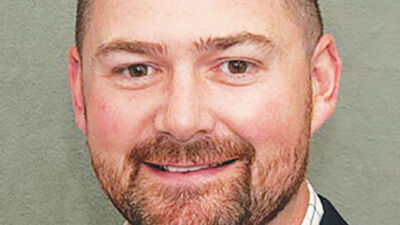ROSEVILLE — A concise audit presentation revealed Roseville’s finances are in good shape, though attention will need to be paid to the city’s pension and other post-employment benefits in the future.
Plante Moran delivered a brief presentation on the city’s 2024 audit at the Jan. 14 Roseville City Council meeting. Roseville’s fiscal year ends June 30. Plante Moran’s Ali Hijazi, Alissa Flury and Samantha Shea all delivered parts of the presentation. They delivered an audit with an unmodified opinion.
“That’s the highest level of assurance we can issue on a set of financial statements,” Hijazi said. “It means the numbers are presented in accordance with the accounting requirements.”
Hijazi said Roseville also received a clean opinion on an audit of the city’s federal American Rescue Plan Act grants.
Overall general fund revenue for Roseville increased by $12.1 million, bringing the total to approximately $49.8 million. This jump is due to ARPA funds the city received. The previous year’s total general fund revenue was approximately $37.7 million. Shea said a difference is expected in 2025, due to the drop in these funds. Plante Moran’s presentation shows this dip to bring the general fund revenue to a projected $45.9 million. Shea said the revenue in remaining categories, such as property taxes, would stay consistent in the upcoming year.
Tax revenue accounts for nearly half of the city’s general fund revenue, according to the presentation. State and federal grants rank second at just above a quarter of the city’s revenue.
The city’s general fund expenditures increased from $35.3 million to $44.6 million. The most sizable portion of the spending came from “other financing uses,” which increased by about $5 million.
The majority of the general fund personnel expenditures, over half, went to the police and fire departments.
Flury said actual property tax revenue for the city has continued to rebound but lags behind inflationary increases.
The general fund balance for the year had a $5 million increase, including a $4.9 million increase in the city’s unassigned fund balance.
Hijazi, near the close of the presentation, said the city’s OPEB and pension funds were a $135 million unfunded liability.
“This is really the challenge the city needs to address,” Hijazi said.
Currently, the city’s retirement system is 72% funded, the police and fire retirement system is 60% funded and the retiree health care benefits plan is 22% funded.
Controller John Walters explained that Michigan Public Act 202 lays out that a municipality’s pension must be over 60% funded and the municipality’s annual contribution can’t be over 10% of total governmental revenue.
“If you fail both of those tests, you have to come up with a corrective action plan for the state to rectify it,” Walters said.
He said that this could be relevant in the coming year because the city’s patrol union, the city’s largest union, is advocating for enhancements to its pension. If this happens, it’ll put the city below the 60% funded point for the pension and conflict with what’s in PA 202. This would trigger the city to work with the state on a remediation plan.
Mayor Robert Taylor said, in comparison to other municipalities, he thought the city is in good shape with its level of funding for the retiree health care benefits plan.
“I think we did pretty darn well,” Taylor said. “I’m just wondering, does the state look at that as well?”
Hijazi said the state doesn’t look at the investment returns, just overall funding. Though, he said that the city’s investments have performed well over the last three to four years for the plans.
“As far as retiree health care goes, we don’t differ from other communities,” Walters said. “We’re actually doing pretty well. We’re only funded 22%, but a couple of years ago it was funded 8%.”
Walters explained that the city funds its retiree health care as the bills come in. There are no new participants in this plan. In addition, he said the city contributes an additional $350,000 toward the unfunded liability.
“Normally, other communities don’t put that extra money in, they just pay as you go,” he said. “The theory is that if you continue to pay as you go, at some point you’re going to be 100% funded because, if it’s closed for new employees, the old employees that are retired will die and you won’t have any more responsibility.”
Near the end of the presentation, Mayor Pro Tem Catherine Haugh asked Hijazi what letter grade the city received on this year’s audit if he had to assign one.
“Like in school, we have different classes,” Hijazi said. “For the audit in terms of your readiness, the quality of your work, working with our team, I’d give you an A.”
However, Hijazi left room for improvement regarding the city’s financial condition.
“In terms of your financial condition, the grade is not as good. It’s hard to give an A or a B when the funding percentages are what they are. What I would say is I’ve been working with the city for a long time and the decisions this council has been making have gotten really good grades. You’ve addressed issues you’ve had in the past, so I have confidence you’ll be able to do the same sort of thing.”
Walters said the city is in a good position.
“Our general fund is healthy again,” he said. “I think we’re at a point where we have enough in reserves to be safe, but not too much in reserve.”
Joint Parks and Recreation Plan moves forward
The Roseville City Council unanimously approved its portion of the 2025-29 Joint Parks and Recreation Plan. The Recreation Authority of Roseville and Eastpointe board unanimously approved its portion of the plan at its Jan. 15 meeting. The plan still needs approval from Eastpointe’s City Council. Its next meeting is scheduled for Jan. 20.
In an interview after the RARE board’s vote, Executive Director Tony Lipinski said the plan has been in the works for over a year.
“I think we’ve got a lot of public input over the year with the surveys, the maps that were put up in the building and the public hearings,” he said.
The plan sets the five-year recreation plans for the two municipalities as required by the Michigan Department of Natural Resources to receive potential grant funding. It looks at assets and improvements throughout the next half-decade in the cities’ parks.
Spalding DeDecker was the firm used to assist the authority with creating the master plan. The plan needs to be submitted to the DNR by Feb. 1, according to Spalding DeDecker Senior Planner Kayla Mauldin.
Roseville resident Jim Mattison commented during the public hearing about possibly putting pickleball courts at Veterans Memorial Park. He said this could be done where an underused roller rink is located in the park. He also advocated for putting infrastructure from the former roller rink in Roseville’s downtown to make a skating rink.
“This is something we’ve talked about with our own parks and rec board and Mr. Lipinski,” Roseville City Manager Ryan Monroe said. “It is something we’ll discuss when we go through the budget cycle coming up for next year. There’s also another opportunity for pickleball courts at Huron Park.”
The plan can be viewed at rare-mi.org/news_detail_T16_R26.php.
 Publication select ▼
Publication select ▼





















